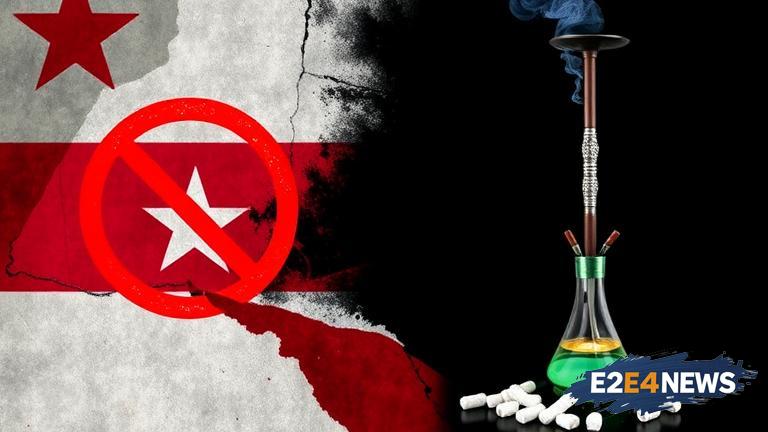The Liberian government has taken a bold step in banning the sale and consumption of shisha and unlicensed tramadol in the country. This move has been met with a mix of reactions, with some hailing it as a necessary measure to protect public health, while others have criticized it as an overreach of government authority. The ban, which was announced by the Ministry of Health, aims to curb the growing trend of shisha smoking and tramadol abuse among young people in Liberia. According to health officials, shisha smoking has been linked to a range of health problems, including respiratory diseases and cancer, while tramadol has been implicated in numerous cases of addiction and overdose. The government has argued that the ban is necessary to protect the health and well-being of its citizens, particularly young people who are most vulnerable to the dangers of shisha and tramadol. However, not everyone is convinced that the ban is the right solution. Some have argued that it will drive the trade underground, making it harder to regulate and increasing the risk of contamination and overdose. Others have criticized the government for not providing adequate support and resources to help those affected by the ban. Top officials in the government are also split on the decision, with some expressing reservations about the ban’s effectiveness and others defending it as a necessary measure. The Minister of Health has been a strong advocate for the ban, citing the growing body of evidence on the dangers of shisha and tramadol. However, other officials have expressed concerns about the potential economic impact of the ban, particularly on small businesses that rely on the sale of shisha and tramadol. The ban has also sparked a lively debate on social media, with some people praising the government for taking action to protect public health, while others have criticized it for infringing on personal freedoms. As the debate rages on, it remains to be seen whether the ban will be effective in reducing the use of shisha and tramadol in Liberia. The government has promised to enforce the ban strictly, with penalties for those found selling or consuming shisha and unlicensed tramadol. However, it is unclear how the ban will be enforced, particularly in rural areas where access to law enforcement and healthcare services is limited. The ban has also raised questions about the government’s commitment to addressing the root causes of shisha and tramadol abuse, such as poverty and lack of access to education and job opportunities. Some have argued that the government should focus on providing support and resources to help young people make informed choices about their health, rather than relying on bans and penalties. Others have suggested that the government should work with community leaders and organizations to develop targeted interventions and programs to address the specific needs of different communities. As Liberia continues to grapple with the challenges of shisha and tramadol abuse, it is clear that there are no easy solutions. The government’s ban on shisha and unlicensed tramadol is just one part of a broader effort to address the complex social and economic factors that contribute to substance abuse. Ultimately, it will require a sustained and coordinated effort from government, civil society, and community leaders to make a meaningful impact on the lives of young people in Liberia. The ban on shisha and unlicensed tramadol is a step in the right direction, but it is only the beginning of a long and difficult journey. The government must now work to ensure that the ban is enforced effectively and that support and resources are available to those affected by it. This will require careful planning, coordination, and collaboration with a range of stakeholders, including community leaders, healthcare providers, and law enforcement officials. It will also require a commitment to addressing the root causes of shisha and tramadol abuse, such as poverty and lack of access to education and job opportunities. By working together, Liberia can make progress in reducing the use of shisha and tramadol and promoting the health and well-being of its citizens.
